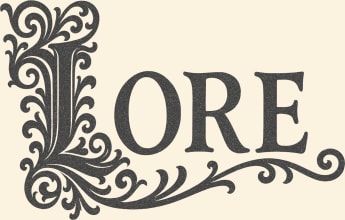On Niching Down
Strong niches, loosely held
Today’s newsletter contains an overview of “niching down” as a career strategy. Read on to learn:
WTF niching down is
A handy-dandy framework for niching down
My own personal niching-down-related career crisis (lol what else is new)
Examples of successful niches (spoiler: there are a LOT of ways to specialize)
Earlier this year, as I was strategizing the launch of my communications and content consultancy First Principles, lots of wonderful humans gave me lots of wonderful advice. Probably 90% of that advice boiled down to either:
Niche down
Don’t niche down
Now that I’m four-ish months into running First Principles, I want to take a look at the pros and cons of niching down as a business strategy. Much of this week’s newsletter is targeted toward fellow independent consultants, though I think the lessons also apply to full-time workers thinking about their long-term career growth.
WTF is Niching Down?
Niching down is the process of homing in on the who, what, when, where, and how of what you offer. People who advocate for niching down say things like you can’t boil the ocean and if you’re selling to everyone, you’re selling to no one.
The logic is essentially that it’s better to be in the top 1% of a narrower field than the top 50% of a larger one. You want to be the first person people call when they have X specific problem instead of the tenth in line for Y general problem. People don’t want “marketers,” the argument goes; they want “growth-stage B2B content marketers” or “brand marketers specializing in sustainable consumer goods raising their Series A” or whatever.
On the other end of the spectrum are people who argue that niching down might preemptively close doors. Specialization means saying “no” to most potential opportunities. This is especially risky, the logic goes, for those who get most of their business through referrals, where your moat is your reputation and your network rather than your niche.
I’ll turn to the validity of these arguments in a moment, but first let’s look at…
How to Niche Down
There are a few ways to niche down, including by:
Industry. I think most people assume “niching down” requires some level of industry specialization. This can be as specific as “women’s health tech” or as general as “enterprise SaaS.” At minimum, people often have a preference for B2B (business-to-business) versus B2C (business-to-consumer), though the consumerization of the enterprise is breaking down that silo.
Services. This is probably the second most-popular axis along which to niche down. Some consultants are full-service (or, for the engineering-adjacent among us, “full-stack”), which might look like tackling all things communications (media relations, brand and content marketing, internal comms, etc). But most specialize to some degree. Some examples I’ve seen in the real world include: consumer product launch PR, LinkedIn thought leadership for executives, crisis communications for financial institutions, GTM for early stage startups, and public affairs for scale-ups in highly regulated industries.
Stage and size. Some consultants are less constrained by industry but prefer to work with companies at particular parts of their lifecycles. For instance, early stage startups tend to be smaller and scrappier, requiring their consultants to wear a lot of hats. Growth-stage startups are in the awkward tween-age years and have the growing pains of adopting grown-up company processes. Public companies have their own set of financial reporting requirements and tend to be larger, with many more internal stakeholders, while immediately pre-IPO companies face a very specific set of challenges across PR, investor relations, and internal comms.
Audience. Perhaps you specialize in investor or analyst relations, reaching under-18 consumers, working with beauty influencers, or navigating European regulators. You might be able to do this work for any number of companies and industries, so long as they need to reach your preferred audience.
You can niche down in just one of these areas or in several. For example, an ex-colleague has “niched down to industry (B2B tech) and content type (long-form content).” Another focuses on high-profile “moments that matter” for financial and technology companies.
A Framework for Niching Down
As a famously anxious person, I was unsurprisingly anxious about whether and how to niche down in my consulting. Specialization felt like closing a door, and like many recovering overachievers, I’d optimized my life for optionality, aka keeping as many doors open as possible.
I also knew that career success depended on balancing strategy with opportunism. My fear was that niching down too far would mean I wasn’t top of mind for some amazing opportunity that I would absolutely nail even if it weren’t in my declared “niche.” I didn’t want to overweight strategy at the expense of opportunity.
After a few months of experimentation, here’s the approach I’d recommend:
Niche down a little. When you’re first starting out, you should have a rough thesis for your niche, but it can be a little blurry. My original pitch for First Principles was “a startup and executive communication consultancy” that helps “startups, scale-ups, founders, executives, VCs, and entrepreneurs to tell their story to investors, employees, and the public.” In retrospect, this was too vague to be particularly useful, but it helped me open doors at a few potential customers, especially early stage startups.
Test the market. When you’ve just launched, you’re a pre-product market fit startup. You need to test the market before you can actually understand what your niche is. As I talked to potential clients (and to the fellow consultants and former coworkers who very kindly pointed business my way), I realized a few things:
My background at the intersection of tech and politics was really resonating with both political orgs and gov-tech startups—even though this wasn’t a part of my original pitch at all.
I initially focused on working with early stage startups that needed to stand up their first-ever comms strategy (in part because I like doing this, and in part because a lot of my target market was ex-Palantir entrepreneurs whose companies were still very early). And while I’m GOOD at this 0→1 phase, I’m GREAT at helping companies that had already built a V1 strategy but now needed a V2 to respond to the turbulence of a crisis or scaling.
I was pitching myself as a full-stack communicator, but people want to categorize you, so give ‘em a category. (More on this below.) Also, I really only got energized by media relations in a crisis/rapid response scenario or in the context of a broader campaign across owned content, social, etc, whereas many early stage startups wanted launch stories or profiles.
Niche down more. Based on this understanding of both what I liked to do and what was resonating, I niched down further into my current branding as an executive communications strategist for leaders at inflection points. I expect to continue to refine this over time, but for now this lens provides an organizing principle (both for clients and for myself) for my tactic agnosticism and the fact that I like working with clients spanning corporate and political work. Right now, I’d describe my ideal customer profile (ICP) as:
An organization at a major inflection point (a critical election, an IPO, refocusing post-layoff, entering hypergrowth, etc)…
Led by an individual with a spiky point of view and a voracious appetite for sharing that POV both internally and externally, in both long and short form
But stay flexible. The reality is that I’m not doing “executive communications” at all of my clients. Sometimes I’m writing content for the brand itself, not their leader. But the point is that I’m developing a keener sense of what I like to do and where I can deliver outsized client value (executive comms, including internal, and owned content). I’ve also gotten less anxious that niching down will foreclose future opportunities. People who’ve worked with you before tend not to spend a lot of time analyzing your public-facing brand before sending you work; they mostly just think, “Hey, this is a smart person who could probably help with this.”
Zooming Out
I see this same pattern play out over the course of people’s careers. Eventually ascending to mid-level leadership will require you to be the go-to expert on something. Then you can generalize again as you continue to move up the ladder and focus less on subject-matter expertise and more on leadership.
By that logic, the meme below isn’t just useful as a point-in-time piece of advice; it’s a timeline for a rewarding career. Start off general and opportunistic, then get strategic and specific about what you’re an expert in to accelerate your growth, and finally broaden your expertise again. This pattern may repeat itself over and over again throughout your career.
Thinking about this specialization as a temporary state rather than a commitment to a forever brand made me less anxious about niching down. If I niche down too far or in a direction I start to find stifling, I can simply…change my niche!
If you’ve also struggled with this question, I’d love to hear where you landed in the comments!




great advice! the visual at the end is so helpful in mapping where someone is in their journey too.